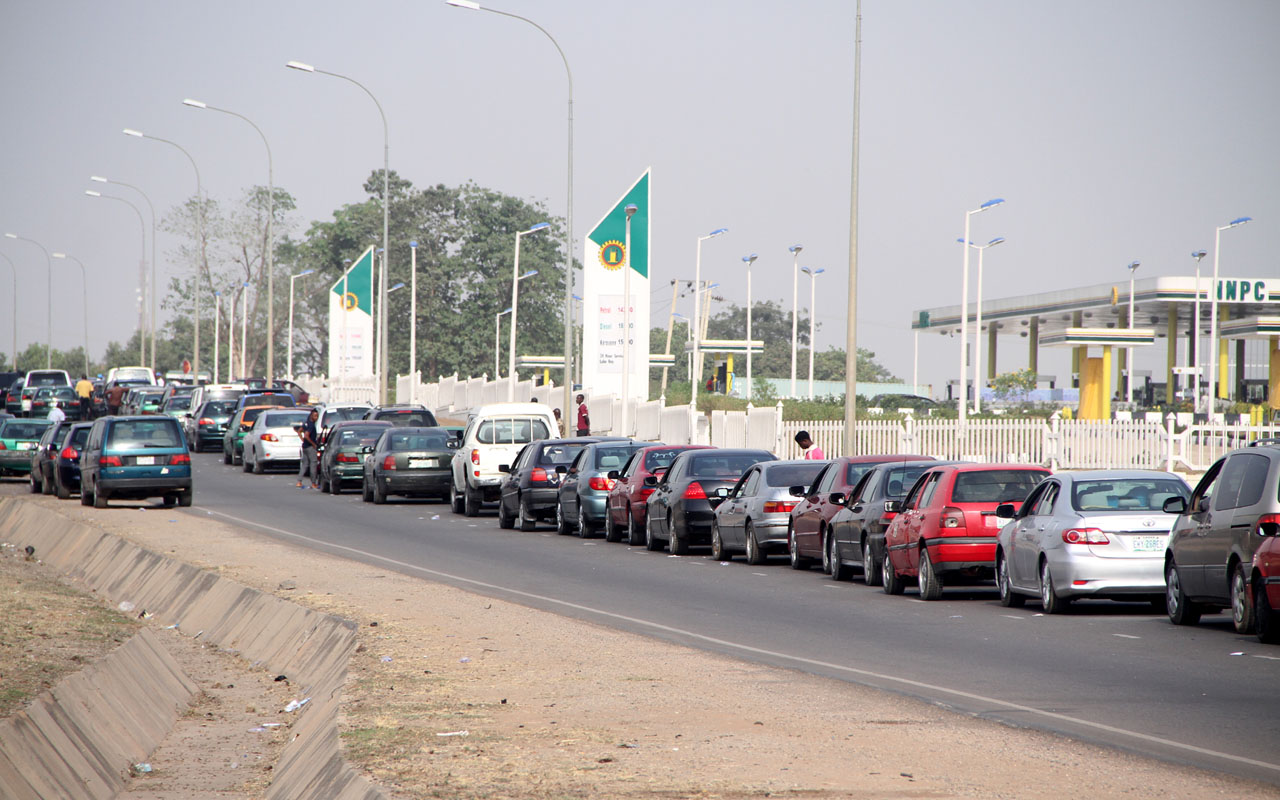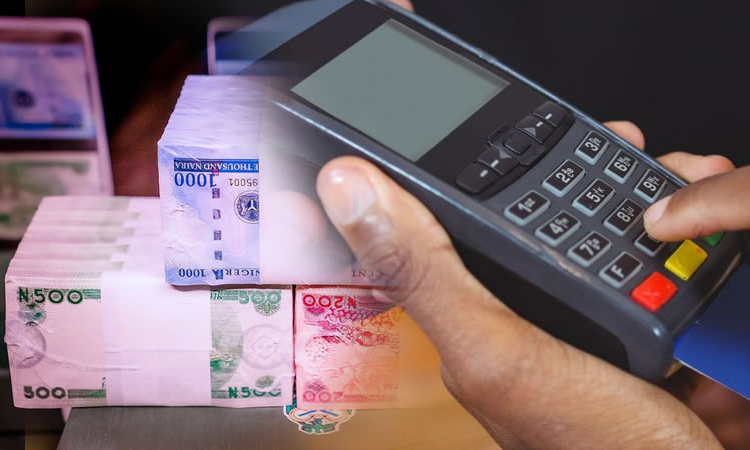“I have been struggling to get cash to buy from the Point of Sale (POS) vendor around my residential area. It has been futile for the past two weeks. Sadly, it is 10:08 am already and I am late for work, yet I don’t have cash to pay for my transportation fare.
“More disturbing for me is the pain of knowing that my family is at home and couldn’t feed because there is no cash. I have money in my bank account but I can’t withdraw it.
“Last night, I literally begged for food, to feed my children. For some days now they have been at home just because I don’t have the cash to give them for transportation to school. We can’t continue like this, the federal government must do everything humanly possible to enforce policy to support the basic needs of a citizen for a dignified life and not the other way around,” said Mr Abu Mohammad, a civil servant.
Mohammed said he had never felt so embarrassed, but he had to beg for food for his children.
Lamenting the pains his family is enduring, he said his children fed on cassava flakes (garri) and leftovers, this morning, there were no leftovers and, so he had to shamefully beg a neighbour for bread.
He said besides not having cash he lamented losses over the recurrent failure of Point of Sale (POS) and Nigeria instant payment (NIP) transactions.
Corroborating Mohammed’s statement, a trader in Abuja, Mrs Ngozi Samuel said after purchasing goods from her supplier, she made a transfer of N95,000, which was debited from her account but her supplier did not receive the money.

Mrs Samuel said besides the fact that the supplier refused to give her the goods the transaction is yet to revert.
She said, “This is sad, till date, I am yet to receive my money, amid mammoth crowd at the bank entrance, I have since reached out to them through calls and emails, but they keep telling the same story that my complaint is being passed to where it would be solved after taking them days to give me feedback.
“Out of trust, so many people have claimed they sent money to till date, I am yet to see the alert.”
A new graduate, Femi Johnson, said a transaction decline caused him an appointment, a job he has been hunting for months.
“I had no choice but to go home. My aim was to withdraw money from the PoS shop but it was abortive. He told me he will give N1,500 for N2000 which I consented. Yet the transaction declined and I was debited,” he said. He added that the money is yet to reverse.
LEADERSHIP Weekend reports that since the Central Bank of Nigeria (CBN) began to swap old bills of the local naira currency for new, re-designed ones, leading to a shortfall in banknotes, Nigerians have been struggling with a shortage of physical cash.
This is even as the scarcity of cash has triggered violent protests in major cities as angry and frustrated bank customers attacked and vandalised banks and blocked roads.
The cash crisis intensified amid the 2023 general elections. Even though the Supreme Court had, last week ordered that the old naira notes should be allowed in circulation along with the new notes until December 31, 2023. The court had said the Federal Government’s naira redesign policy contravened the 1999 Constitution.
However, the CBN is yet to formally give a directive to deposit money banks (DMBs), stoking confusion over the status of the contentious N500 and N1,000 notes. This silence has triggered discretional positions by different banks, leading to widespread confusion among depositors. Many banks have even issued a few old notes in their vaults, but not many receive the same currencies they dispense from customers willing to deposit.
On the other hand, protracted fuel scarcity has been lingering in Nigeria since January 2022 and the independent oil marketers have said the current crisis rocking the petroleum sector is far from over. This is corroborating the Independent Petroleum Association of Nigeria’s (lPMAN) assertion that fuel scarcity is due to the unavailability of petroleum products and difficulty in accessing foreign exchange by marketers. Despite the official pump price being put between N185 and N195 per litre by the federal government, PMS is currently being sold for over N300 in most locations, majorly outside the cities.
Beyond the increase in the price of the PMS, the scarcity of the product has plunged Nigerians into deep-rooted suffering. The ripple effects of these are contributing to the high cost of living in the country. For instance, the quadrupled cost of most forms of transportation and the high cost of running businesses.
CBN’s Silence: Motorists, SMEs, Stores Reject Old Naira Notes
A motorist, Alhaji Ahmed Isah, said after spending two hours in the queue he had no choice but to buy fuel from black market fuel vendors at N4,800 for 10 litres.
Checks show that the situation has indeed taken a turn for the worse amidst the rise in the activities of black market vendors of Premium Motor Spirit, popularly called petrol, at every nook and cranny of the country.
This is even as the black market vendors close to the filling stations, including those that supposedly opt to have fuel keep hoarding the product. However, for those who engaged in this kind of business, this fuel scarcity represents a season of boom.
Speaking with LEADERSHIP Weekend, a public affairs analyst, James Olaoluwa, said the relentless long queues at fuel stations speak volumes of what looms ahead amidst uncertainties.
Olaoluwa stressed the need for the Nigerian National Petroleum Company Ltd (NNPC) to expedite action to distribute its 1 billion litres of PMS in its stock to ameliorate the sufferings of Nigerians.
A fashion designer, Mrs Ngozi Michael also decried the hardship caused by fuel scarcity.
According to her, “I am feeling miserable already. The hardship caused by fuel scarcity is tough on me and becoming unbearable. I cannot power my generating set. I have been using my phone’s flashlight or candles at home if power is interrupted by Power Holding Company of Nigeria (PHCN).
“What this also means is that we wouldn’t be able to pump water using the borehole, or use iron to stretch my customers’ clothes, likewise there would be no microwave to defrost our food.
Speaking further, she said, she is paying two times the normal transport fare to get to work daily.
Civil society group, ActionAid Nigeria, has called on the Central Bank of Nigeria and the Federal Government to proffer permanent solutions to the naira and fuel scarcity crises in the country.
Country director, ActionAid Nigeria, Ene Obi lamented that Nigerians were going through multiple issues in the country, which had been compounded by government agencies.
Obi stated that while the intention of the apex bank in redesigning the naira notes was applaudable for reducing the amount of cash in the system, and promoting a cashless economy, it was however leading to frustration among Nigerians, as there were scarcity of the naira and the sudden disbursement of coins over the counter.





